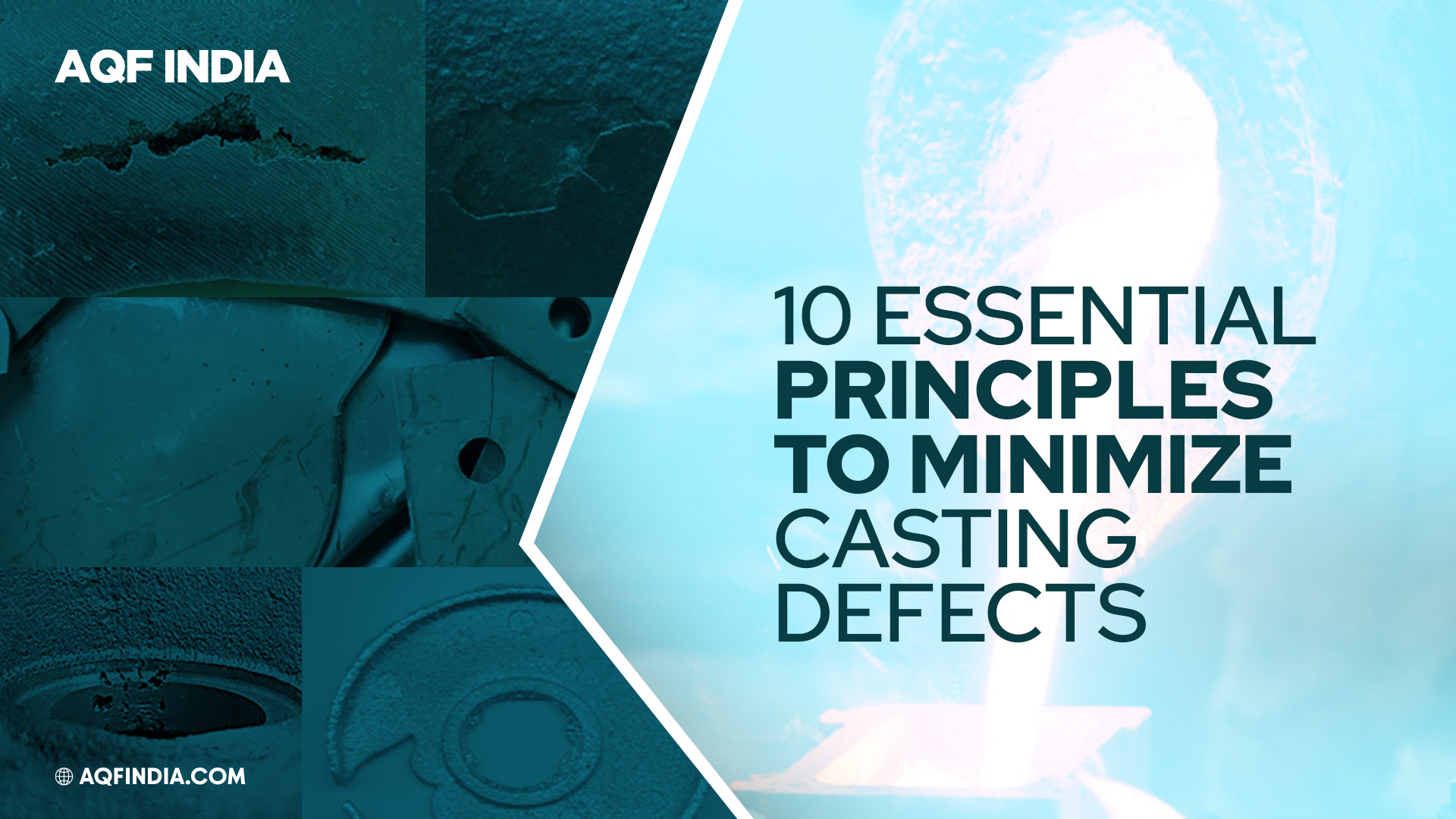How Iron Casting Foundry Machine Shops & Casting Manufacturers in Coimbatore Ensure Quality
Iron casting foundry In recent days, casting defects are common but if left unchecked it can have a negative impact on the quality or durability of the metal components. From small to large scale industries that rely on iron casting foundries, minimizing defects with utmost precision is a vital factor.
10 Basic Principles to Minimize Casting Defects
For those seeking to get the best cast, approaching the best casting manufacturers in Coimbatore like AQF India is preferred because they stick to the basic principles to ensure the castings are defect-free.
1. Optimize Mold Design
Proper metal flow and solidification in casting ensures that the mould is well-designed. Standard riser systems and gating minimizes turbulence and prevents defects like shrinkage and porosity. An iron casting foundries must be able to invest in advanced simulation software in order to refine the moulded designs before production.
2. Use High-Quality Raw Materials
Casting defects such as gas porosity and inclusions can also occur in the impurities of raw materials. This ensures the casting manufacturers in Coimbatore keep high-quality metals and additives at the top priority by performing strict quality checks before even introducing raw materials into the process.
3. Control Pouring Temperature
The right pouring temperature ensures uniform solidification and avoids shrinkage. When the temperature is too high, it can lead to too much melting of gas and some oxidation. Foundries, including integrated Foundry machine shops, will need to watch and control the metal’s pouring temperature.
4. Implement Effective Degassing Techniques
The common defect caused in the molten metal is the trapped gases which is known as gas porosity. An iron casting foundry should utilize insert gas purging or vacuum degassing techniques to remove dissolved gases and enhance casting integrity.
5. Maintain Proper Sand Quality
Considering the sand casting, the moulding sand’s quality has a direct impact on the final product. Reusing sand without proper conditioning weakens moulds and results in defects like sand inclusion. Casting manufacturers in Coimbatore should ensure to test and maintain sand properties for defect-free castings.
6. Ensure Uniform Cooling and Solidification
Uneven cooling may cause residual stresses and cracks in casting. By designing cooling channels in an appropriate manner and having a control on solidification rates, an iron casting foundry helps in minimizing the risks of thermal stress and distortion.
7. Regularly Maintain Foundry Equipment
There can be inconsistencies in the casting process due to the poorly maintained equipment. This can also lead to defects causing the Foundry machine shop to perform routine inspections and maintenance on ladles, furnaces, and moulds to make sure the operations are smooth.
8. Minimize Turbulence During Pouring
Turbulent metal flow increases risks in casting industries like oxidation and air entrapment. To overcome this, casting manufacturers in Coimbatore should craft efficient gating systems for a smooth and controlled metal flow into the mould cavity.
9. Apply Rigorous Quality Control Measures
X-ray, magnetic particle inspection and ultrasonic testing are the inspection techniques that are used to detect the internal and external defects. At every stage starting from material selection to final product evaluation, an iron casting foundry implements strict quality control to overcome defects.
10. Train and Educate Foundry Workers
Human expertise is vital to maintain high-quality production especially while using advanced machinery. Foundry machine shop have regular training programs for workers to understand the latest industry’s best practices in order to reduce errors and defects.
Final Thought
To summarize, an iron casting foundry can significantly improve product quality and reduce defects. The best casting manufacturers in Coimbatore like AQF India ensures to meet the industry standard by using cutting-edge technologies and continuous improvements to maximize production and exceed customer expectations.






